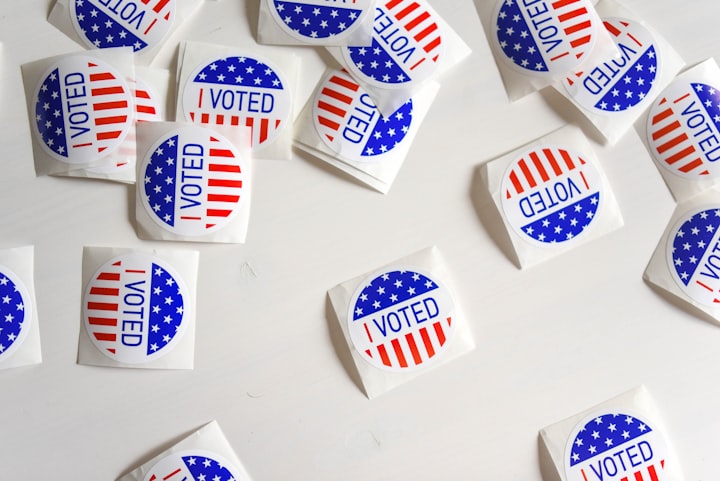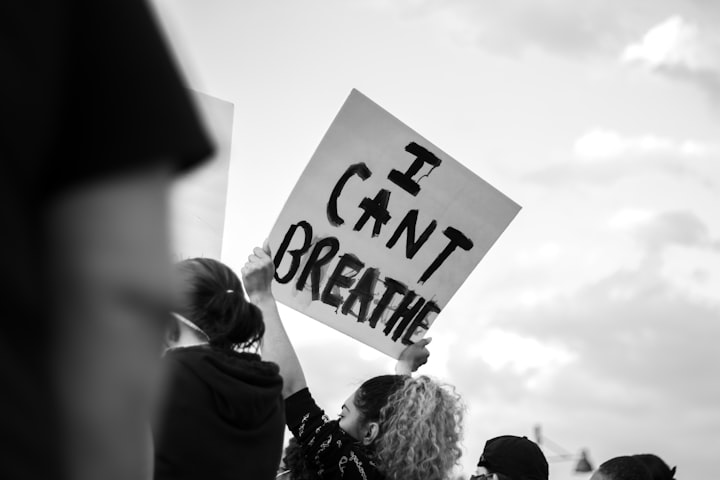
2020 has been a big year for the Black Lives Matter movement, but not for any reasons worth celebrating. In March, Breonna Taylor was shot dead in her own home during a botched raid. In May, George Floyd was killed by a police officer who knelt on his neck for over 8 minutes despite cries that he could not breathe. These are only two of many instances of police brutality and violence in the US this year.
In the months following these murders of Black American citizens, protests spread across the US and across the globe. Despite claims by the Trump administration that the protests were agitative and the subsequent onslaught of militarized police forces thereafter, the protests only grew in both numbers and spirit. Meanwhile, the President shows support for white nationalists and supremacists, showing his anti-Black racism in new ways all the time - these extremists are voting for him and supporting him, and he sees them as important. Nevertheless, the Black Lives Matter movement was gaining more political and global awareness by the day.
The movement was not only physical, but took up a large standing on social media as well, most notably perhaps the Instagram-wide ‘Blackout’ as a response to Floyd’s death, featuring 28 million users posting black squares onto their feed, representing solidarity with Floyd’s family and the Black community.
There is no doubt that the movement gaining more global recognition in this way is a good thing, but it was also valuable in that it started a conversation about white guilt, privilege and allyship on a larger platform. These were not conversations I could ever remember having in such depth.
Much of the conversation surrounding Instagram’s #BlackoutTuesday addressed the issue of white people posting their black squares, which took barely 30 seconds to do, to alleviate any guilt we felt over the issue of racism so that we could get on with our day with a clear conscience.
This was an incredibly important conversation to have, and it still is right now. Why, as white people, do we believe it is adequate to respond with tokenistic measures to make ourselves feel less guilty about being white? It isn't particularly helpful to anyone, and in the end, only serves to make our own lives easier - again.
My fear on the runup to this election was that a similar discourse would occur for us same young white liberals - we vote Biden and act like our work here is done, that we have done our piece to combat racism, when this is simply not enough. Of course, we all needed to vote Biden, don’t get me wrong, it was absolutely imperative that we did so, for issues of racial injustice among copious others. However, simply voting is just not enough anymore. The system is broken, and it is our job as white people to be as educated and supportive as we possibly can be. Black activist Dr Ateh Jewel said it well when she said: “to be part of the cure of the sickness of racism you have to put your money, voice and body on the line.” That is, simply saying that you do not agree with racism is not enough to fix it. This problem is deep and structural, the very foundations of the US were built on injustice and racism; fixing it will take more than simply voting for a President who is not a known white-supremacist.

So, in light of these thoughts on this upcoming election, I decided to do something other than the bare minimum of casting a ballot, and actually look for ways that I can support the Black community as well as educating myself better on how to be anti-racist. Below are some of the measures I am taking to be a better ally. This is not an equivalent to patting myself on the back and absolving myself of any responsibility; it is simply an encouragement to other white people to do the work for themselves, as well as a guide towards some helpful resources.
Emailing my local politician
One of the first things I did was write to my House Representative, urging them to support a commission to develop reparation proposals for African Americans.
I also found out what measures my state was taking to prevent police violence and saw how my representative was voting on that subject. To see what your Representative votes, check out joincampaignzero.org
I also sent an email to my local representative in support of criminal justice reform. Templates of these emails can be found easily online and this made the process very simple. The aim of this is to put pressure on politicians to enact change by showing that it is what their people want.
Educating myself on my own privilege :
Something I learned is that it is not enough to speak about issues of race and privilege in a performative manner, simply saying ‘this is awful!’ ‘racism shouldn't exist!’ is not enough to begin to promote real change.
As a white woman I know I must educate myself on the issues through my own research, either online, in the media, or through books, and that it is not a person of color’s responsibility to educate me.
My education will be an ongoing pursuit, and something I will continue to pursue for the rest of my life. The color of my skin has awarded me privilege for the entirety of my life, having been seen as the ‘acceptable’ or ‘norm’ since birth.
My main takeaways on privilege are that it isn't about having a better life than someone else, it doesn't mean that I am ‘luckier’ than someone else, it simply means that because of the color of my skin I do not face the same discrimination and prejudice as people of color.
Here are some of the key resources I used to educate myself on my own privilege:
Books-
Layla Saad, Me and White Supremacy
Ibram X. Kendi, How to be an Antiracist
Akala, Natives
Ijeoma Oluo, So You Want to Talk About Race
Bernadine Evaristo, Girl, Woman, Other
Renni Eddo-Lodge, Why I’m No Longer Talking to White People about Race
Instagram-
@askapoc
@iamrachelricketts
@monachalabi
@stephanieyeboah
@blairimani
@candicebrathwaite
@blklivesmatter
@manassalinetanyacompas
@remi.sade
@sassy_latte
@laylafsaad
Podcasts-
Still Processing
Code Switch
Somebody
The Read
Truth be Told
Ear Hustle
74 Seconds
Not centring myself and my own feelings in the conversation
nother huge part of the learning process was the idea that as a white person, my feelings, perspectives and opinions on the issue of racial injustice should never be the focal point of the conversation. Again, this is something I had failed to realise was harmful. Rather than sharing my views, I have been educating myself on the process of lifting up those without visibility or privilege so their voice can be heard.
This also includes calling out privileged peers and refusing to condone any kind of racism among my friends, family and colleagues - no matter how ‘awkward’ or ‘uncomfortable’ it may be.

Donate directly to Black Lives Matter
This will help to support their upcoming campaigns:
“We appreciate your support of the movement and our ongoing fight to end state-sanctioned violence, liberate Black people, and end white supremacy forever.”
Donating to the Minnesota Freedom Fund / other bail funds :
Bail funds such as the Minnesota Freedom Fund are community-based nonprofits that help with paying bail for low-income incarcerated individuals who cannot pay it themselves.
Projects like these have received overwhelming financial support through donations this year, and most now use the excess funds for protesting campaigns or legal support.
Donating to mutual aid networks :
Due to bail funds receiving huge donations recently, some are also now asking people to put their donations towards other direct community efforts instead, so I decided I would also donate to my local mutual aid network.
Mutual aid networks are set up where people take responsibility for caring for each other during political times that remain uncertain. Donating to these projects can help people in your local community during times of unrest.
Donate through streaming or playing games :
For those who are not in a position to donate money, there are apps and websites that allow you to donate through streaming or playing games, where the advertisement money will go to BLM charities.
Buy from black businesses and support Black creators:
In general, I am also doing more to support Black creators online by following them and engaging with their content. I am also supporting Black businesses by actively seeking them out when I want to buy something and purchasing there.
Here are some of my favorites, so that you can support them too:
Beauty Bakerie - adorable vegan and cruelty free makeup products
The Lip Bar - great alternative to Kylie Cosmetics
Golde - superfood brand selling teas and supplements
BLK & Gold - tea and coffee
The Bark Shoppe - pet care products
By Ms James - prints and paper goods - so cute!
Spoiled Boutique - offers a subscription box with a full outfit!
About the Creator
Hannah
everything you can imagine is real






Comments
There are no comments for this story
Be the first to respond and start the conversation.